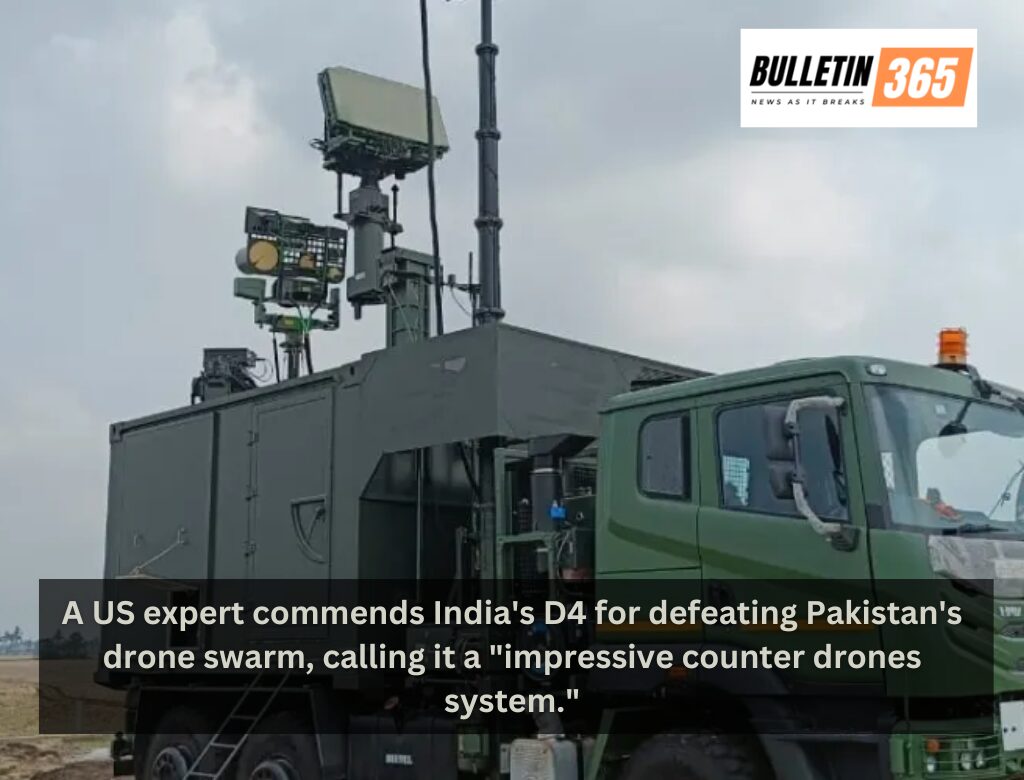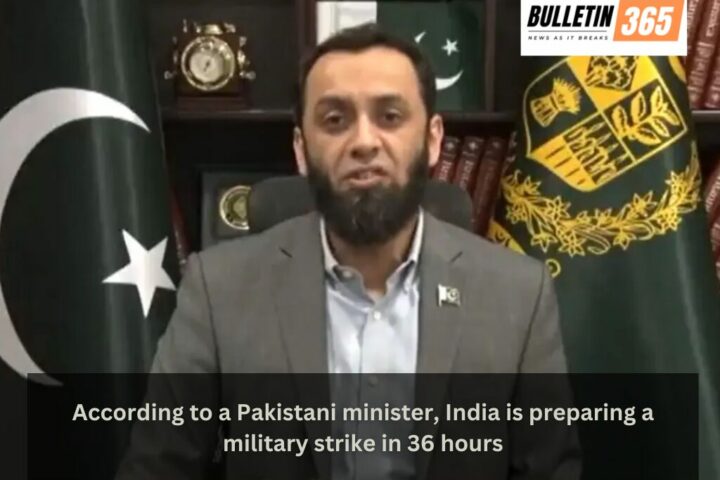A US expert commends India’s D4 for defeating Pakistan’s drone swarm, calling it a “impressive counter drones system.” Spencer claimed that the technique was crucial in stopping Pakistan’s recent drone swarm attack, which involved Turkish drones, throughout India.
DRDO created the D4 system, which stands for Detect, Deter, and Destroy, and BEL produces it.
India’s D4 anti-drone system has been hailed as “an impressive counter drones system” by John Spencer, a US warfare expert and chair of urban warfare studies at the Modern War Institute. He claimed that the system was crucial in stopping Pakistan’s recent drone swarm attack, which involved Turkish drones, throughout India. “The U.S. needs effective, to include cost-effective, counter-droned on our U.S. Southern Border,” he wrote on X.
Spencer’s remarks come amid growing global attention to India’s technological capabilities following the country’s limited but decisive conflict with Pakistan. The US expert reacted after Ravi Ranjan, a social media user, noted: “India’s D4 Anti-Drone System is now in the global spotlight. After its stellar performance in neutralizing threats during the Pakistan conflict (during Operation Sindoor), the world is taking notice. Made in Bharat. Trusted in battle. Feared by enemies.”
India’s indigenous Drone Detect, Deter, and Destroy system (D4S), an impressive counter drones system that played a major part in neutralizing Pakistan’s recent drone swarm attack across India including Turkish drones. The U.S. needs effective, to include cost effective,… https://t.co/CF3VlyTCEv — John Spencer (@SpencerGuard) May 17, 2025
The DRDO-developed D4 system, which stands for Detect, Deter, and Destroy, is produced by BEL. It was created to counter a variety of drone threats, including small armed drones and micro UAVs. To identify and eliminate intrusions, the system combines spoofing, electronic jamming, and maybe laser-based kill methods.
During Operation Sindoor, which was initiated in reaction to the Pahalgam terror attack, India successfully implemented the system. The campaign effectively repulsed counterattacks, including drone invasions, and targeted prominent militant infrastructures within Pakistan.
“India was effective in hitting across Pakistan and defended itself successfully, especially against Pakistani drone assaults and high-speed missiles,” Spencer had previously said in praise of India’s overall military performance. He described India’s message as clear: “It can hit anywhere in Pakistan anytime.”
The war expert called Operation Sindoor “the inflection point in the war on terror” and urged military analysts worldwide to study its execution. He said, “India’s message was clear: We don’t want war but will punish terror without escalation.”
Spencer further stated, “After just four days of calibrated military action, it is objectively conclusive: India achieved a massive victory. This was not symbolic force. It was decisive power, clearly applied.”
He also criticised Pakistan’s post-operation narrative strategy, saying the country used a “first to lie” tactic to flood international media with misinformation. “Like we have seen in Gaza, fact-checking has become a lost standard. All in the name of being ‘first,’” he posted on X.
Spencer supported India’s broader strategic response, including the suspension of the Indus Water Treaty, and urged Western powers to end their “both-side-ism” approach to terrorism.



















